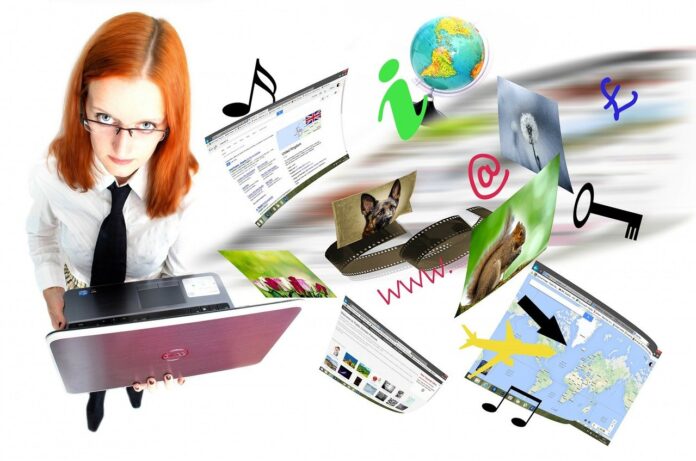Retail technology involves solutions that help retailers in the management and optimization of operations. They enable them to cut costs, increase revenues, improve customer experience and satisfaction, increase retail conversion rates, and reduce returns. Business tech tools can be costly; that’s why you should consider their long-term profitability before investing in them. Before purchasing, determine if there’s a real need for the tool.
Considering the tech tools’ adaptability, customizability, and scalability will help determine if the devices will grow with your business while adapting to your business’s changing needs. Assuming you have enough employee buy-in, understand the time and costs needed to train your staff on the new technology and the hidden charges involved. Ensure that you are the vendor’s technical support for an easy transition. Here are essential tech tools for retailers.
1. Retail Point of Sale (POS) software
Retail POS software provides you with tools to manage transactions such as credit and debit card processing, inventory, accounting, invoicing, receipt generation, employee management, and customer service. It eliminates cash registers, manual inventory management, and accounting. It also creates reports and provides analytics depending on sales data. A mobile POS solution is ideal for those who cannot process credit card payments in person.
Integrating the POS software with an ID scanner app helps you identify fake credit cards, fraudulent shoppers and also autofill the payment details. It also enables you to comply with age-restricted goods laws by verifying the shopper’s age.
2. Retail management software
Retail management software helps you drive more sales with the combination of solutions such as customer relationship management, point of sale, inventory management, and more. It provides multiple services that help streamline the store’s running process. Daily tasks like employee shift scheduling, customer checkout, finance tracking, and buying and managing inventory can quickly be done in one application. With one solution, all business systems can share information and collaborate well.
Other retail management system components are workforce management, accounting, and analytics. The ideal retail management system should have multiple functionalities that combine several systems into one application, manage store operations, track sales inventory, and have an analytics function.
3. Help desk software
Help desk software provides your staff with a ticketing system to organize and respond to inquiries and create information portals on your business’s website. Through help desk platforms, customer service teams streamline support processes and offer analytics into customer engagement across all your communication channels. It can be categorized by business size, deployment, and customer support function.
Help desk software also contains self-service, live chat software, social customer service integrations, and other features for a complete customer service experience. The ideal software organizes external customer inquiries into tickets for support teams, combines customer portal and email questions, and assigns the tickets to customer support teams for prompt service.
4. Ecommerce software
eCommerce software is a solution that drives online store processes to help you process payments, add or remove products, manage inventory, fulfill orders, and compute taxes. Online stores consist of many complex processes and components that the eCommerce software streamlines. The software integrates with other solutions like payment gateways, CRM, email marketing tools, CMS, ERP, social media networks, fulfillment services, and accounting software, becoming an all-in-one integrated platform.
It helps you manage products and inventory, customers and orders, simplifies marketing, enhances customer service, and automates shipping and taxation. The ideal eCommerce software should have a product catalog, web hosting service, shopping cart, payment processing, merchant interface, order fulfillment, and shipping.
5. Accounting software
Accounting software enables businesses to automate and streamline financial management processes, enhance record accuracy, and increase operational efficiency. It varies in functionality and complexity and may include payroll processing, reconciliation, invoicing, financial reporting, bill and expense accounting. You can integrate the accounting software with ERP systems.
The ideal accounting software should maintain a business’s chart accounts and general ledger, offer accounts receivable and invoicing features, manage bank/ cash accounts and payment methods. You can also track costs, revenues, and determine the company’s sold products and services profitability, provide standard reports, and automate accounts payable workflows for purchase orders and payment processing.
6. CRM software
Customer relationship management software is a solution aimed at helping your retail business to offer your clients a unique, seamless experience while building better relationships by providing a complete picture of customer interactions to track your sales, organize and prioritize your opportunities, and facilitate collaboration between teams. Your retail business needs a CRM if there’s a communication breakdown, lack of centralization, poor customer satisfaction, and more.
When implementing a CRM in your business, consider scalability, usability, security, mobility, customization, and an easy and quick migration process. An effective CRM software ensures efficient business processes, boosts sales, tactful decision making, customer satisfaction, data security, and compliance. A CRM with a mobile app allows your staff to access CRM data from anywhere.
7. Marketing automation software
Marketing automation software automates tasks, measures marketing campaign measures, and streamlines marketing software. It provides a central database for all interactions and marketing data, helping your marketing team segment, personalize, and create timely marketing experiences for potential clients and customers. Marketing automation software offers automation features across other marketing aspects such as social media, email, social media, direct mail, lead generation, and digital advertising.
These automation tools offer analytics features to determine your campaign’s impact on return on investment, your marketing team’s KPIs, and the campaign’s impact on business revenue. They can integrate social media management tools, CRM software, account-based orchestration platforms, and CMS tools. The ideal automation marketing software should offer advanced email marketing capabilities, generate landing pages and forms for prospect’s data collection, conduct lead management, provide reports and analytics that track a campaign’s lifecycle.
8. Customer experience software
Customer experience software monitors and enhances the experience customers have when interacting with your brand. It provides support and information to clients and potential clients while ensuring a positive experience. Integrating this software with a help desk, AI sales assistant, customer journey analytics software, social media management, CRM, and account-based management will help you deliver the perfect customer experience.
The ideal customer experience software should, through aggregated data or other unique instances, offer actionable customer satisfaction data. It should also help your staff to create the best outcomes for your clients.
Endnote
Tech tools help streamline business processes and repetitive tasks for improved productivity and increased revenue. Consider using the above tools to help you effectively run your retail business.





